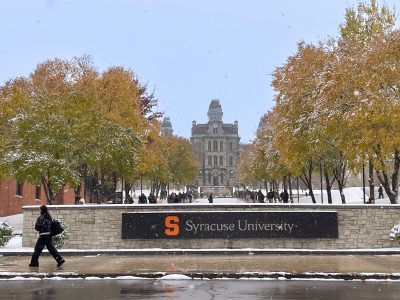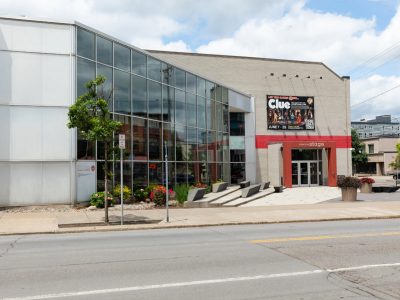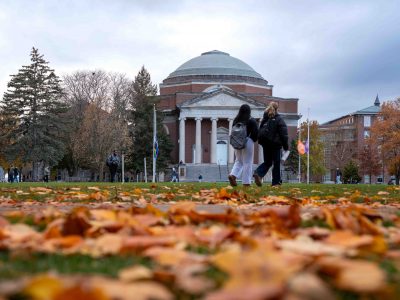A Critical Link: Field Supervisors Support Teachers-in-Training Through Experience and Reflection
Now in the third act of their distinguished careers, Patricia Floyd-Echols G’83, G’95 and Patricia Charboneau G’08 continue to demonstrate a commitment to training the next generation of teachers. Both Floyd-Echols and Charboneau are former teachers and school administrators, and the two School of Education (SOE) alumni are passionate about supervising student teachers throughout their classroom placements as field supervisors.
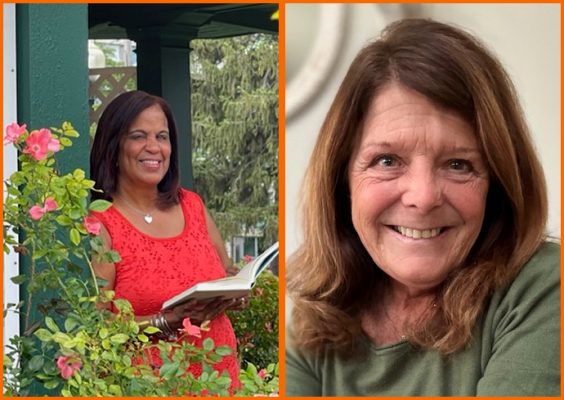
Field supervisors are critical to SOE’s mentored placements model that prepares student teachers to lead their classrooms from day one. As seasoned educational professionals, Floyd-Echols and Charboneau bring a wealth of experience to their roles, offering feedback and insight to successfully merge textbook lessons with classroom immersion.
Their experience resonates with the teachers-in-training they oversee because of the time they set aside to reflect on what went well in the classroom while discussing what improvements can still be made. Observations, feedback, and evaluations extend over three field sessions for each student, and the supervisors observe students teaching a variety of subjects, from English to math to inclusive education.
Glows and Grows
Charboneau taught for 23 years before switching to an administrative role as East Syracuse Elementary School principal. She describes her field supervisor role as akin to a support system.
“In classes, teachers-in-training are given very specific guidelines on what needs to be covered during student teaching, and we are given those same guidelines,” Charboneau explains.
Prior to classroom observations, Charboneau reviews a student’s draft lesson plan, adding comments and questions. Following the evaluation, she meets one-on-one with the student teacher for a post-observation conference. She likes to use this session as an opportunity for what she refers to as “glows and grows.”
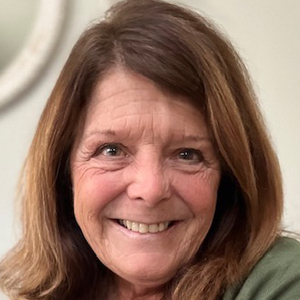
“I’ll ask the student teachers what they think went well in the lesson—what was ‘glowing?’” she says, noting this can be a difficult task for self-effacing students. “It’s uncomfortable for students to brag about themselves, and they have a hard time with it.”
Next, the pair discusses the “grows,” or what could be improved, and how a lesson can be modified for a better response from their young charges. “This is when I can pinpoint certain things and suggest other strategies to try,” Charboneau says.
If Charboneau observed that an elementary student was off-task and the student teacher didn’t notice, she might suggest that the student teacher walk around the classroom, to spread themselves around more.
“I want to emphasize the good they are doing, so they can take it with them. It’s about filling that toolbox with as many strategies as they can,” Charboneau says.
Turn and Learn
Charboneau says she even picks up new strategies from her student teachers. “I learned something so cool recently from one of my students,” she shares. “It’s such a little tweak on something everyone’s been doing forever that makes it so much more effective.”
A typical classroom strategy is to tell students to turn and talk with a neighbor about the lesson just delivered.
“Instead of calling that ‘turn and talk,’” Charboneau says, the student she observed called it “turn and learn.”
“Because you don’t want the kids just talking about anything. They could chat about what they’re going to have for lunch. ‘Turn and learn’ means you have to share what you just learned,” Charboneau says. “It just takes it to another level. I think it’s a great strategy.”
Having offered a powerful example of why classroom immersion is so important, Charboneau recalls that during the COVID-19 pandemic, SOE students had a setback because they missed two blocks of field placements.
“The student teachers were using instructional strategies with their peers, and it’s not the same,” explains Charboneau. “I mean, kids are kids—they are going to respond a certain way. They may not understand the concept. They may get frustrated. So, the more hands-on practical experience student teachers can get, the better.”
“What’s the Why?”
Floyd-Echols, who served in the Syracuse City School District for 39 years, including as principal at Dr. King Magnet School, likewise believes in SOE’s high-touch training model.
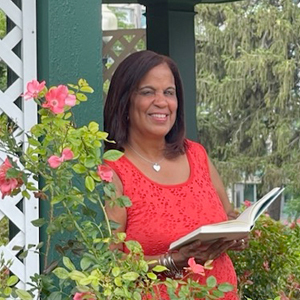
In particular, Floyd-Echols applauds Syracuse’s program for how soon student teachers gain field experience, which can begin as soon as their freshman year.
“The sooner teachers get in with kids, the more practice they’ll have,” Floyd-Echols says.
Putting them at ease, she always tells her student teachers that her job is to “make them a great teacher, not catch them having a bad day. … I say, I’m here to push you to think about the bigger picture.”
Based on her nearly four decades of experience, Floyd-Echols advises student teachers to ensure lesson plans are meaningful, something that was ingrained in her early on.
“When we sit down to debrief, I pose the following questions, ‘What did you want the kids to be able to do by the end of the lesson? Did you get there? If not, what will you change next time?’” says Floyd-Echols, who adds that this strategy explores how a lesson connects content matter to the students’ learning.
“Say a student led a lesson on dinosaurs,” adds Floyd-Echols. “What are the young pupils doing with that information? Lessons need cohesiveness, so I will ask, ‘How does this lesson connect? If you talked about dinosaurs, are you going on a prehistoric fossil hunt? What’s the why?’”
Very Rewarding Work
In her reviews, which she calls “debriefings,” Floyd-Echols makes time to sit with the student teachers to provide constructive feedback on how to make improvements. The goal is for lesson two to be better than lesson one. “Mistakes will be made and that’s OK, but learn from them,” she says.
Designing the inclusive education program at Ed Smith was a highlight of her career, says Floyd-Echols. She says the strategies she learned as a special ed teacher are just as valuable for general education, noting all students need individual teaching plans.
When she earned her teaching degree, she recalls, teachers pursued either a general education or special education certificate—but now they can earn both. Today, SOE’s bachelor’s degree program in Inclusive Elementary and Special Education (Grades 1-6) translate to New York State initial teacher certification in both Childhood Education (Grades 1-6) and Students with Disabilities (Grades 1-6)).
General and special education training “makes you versatile,” Floyd-Echols says of opportunities teachers-in-training have now. “It also gives the school and the principal a lot of flexibility.”
Floyd-Echols believes teaching must come from the heart, a trait she can see shine through in those who dream to be teachers. “The more time to see the craft and work at it, they will understand it’s hard work, but also very rewarding work.”
Ultimately, SOE’s immersive and mentored training is the best model for new teachers, Charboneau believes, because of its hands-on nature. “One can’t learn how to teach kids without the kids,” she concludes. “You can’t duplicate real-life experiences.”
Story by Ashley Kang ’04, G’11 (M.S. in higher education)

